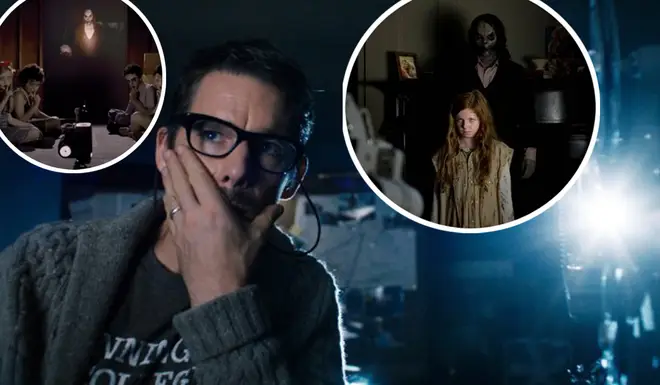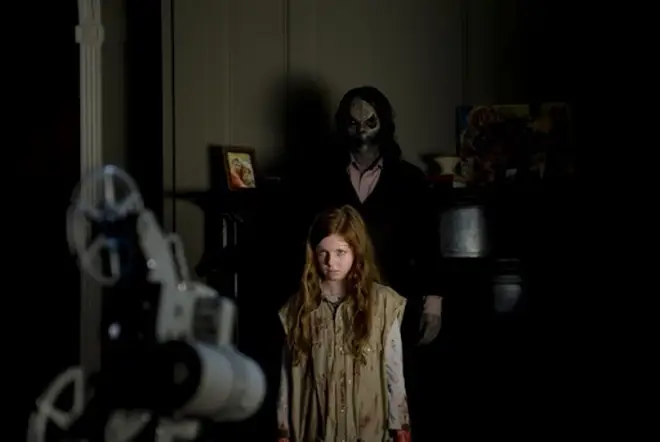On Air Now
Heart's Club Classics with Pandora Christie 7pm - 11pm
22 October 2020, 15:15

If you're looking to get spooked this Halloween, it might be worth trusting the science behind the scare.

Sinister Official Trailer
A new scientific study has found the scariest horror film ever, apparently.
While we all have our own opinions on what makes a horror film truly terrifying – jump scares, plot twists, gore etc – this study has examined human bodily responses to certain films in order to crown a winner.
And that winner is 2012 flick Sinister, starring Ethan Hawke, Juliet Rylance and James Ransone.
The film tells the story of a true-crime writer who moves his family into the home where a gruesome murder took place, only to be met with a supernatural enemy.
READ MORE: Mum shares easy treasure hunt game to replace trick or treating for kids this Halloween

While many may disagree, this film definitely left us sleeping with the lights on for a couple of nights.
The study, carried out by comparison tool for broadband deals, broadbandchoices, found these results by tracking the heart rates of 50 adults from varying ages.
The study, which they dubbed the 'Science of Scare Project' had the adults watch over 100 hours of horror films before they came to a conclusion.
The study found that the people in the study had an average resting heart rate of 65BPM, which shot up to 86BPM during Sinister – a 32 per cent rise.
While Sinister did come out on top, it was followed by Insidious in second place, which caused the biggest increase in heart rate from one jump scare.
On average, the moment from the film forced the heart rates of the participants to shoot up to 133BPM.

Sinister and Insidious were followed by The Conjuring, Hereditary, Paranormal Activity, It Follows, The Conjuring 2, The Babadook, The Descent and The Visit.
Creator of the study, Daniel Clifford, said: "With more people than ever facing a Halloween at home, our Science of Scare study was designed to help people find the most scientifically scary films ever made, to save them the time of searching through thousands of titles across streaming services like Amazon, Netflix and Shudder.”
Of course, science may not be able to determine how scary films are in general for people as different types of horror films with different storylines effect people differently.
The study also only used films that were included in top round-ups from IMDB and Rotton Tomatoes, for example, and so there could be a scarier film out there we just haven't heard of before.
READ MORE: Mum reveals how to make incredible giant pumpkins out of rubbish for Halloween